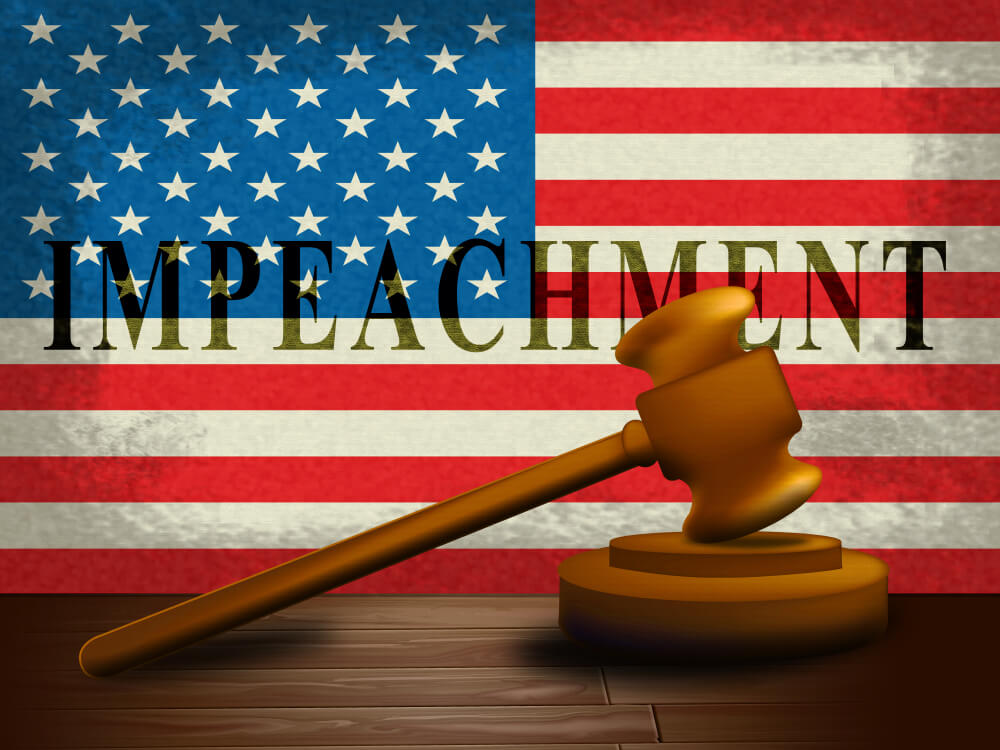House Democrats introduced two articles of impeachment against President Donald Trump on Tuesday as the climax of their nearly three-year witch hunt, but Wall Street remains largely unfazed.
House Judiciary Chair Jerrold Nadler said Trump is accused of “high crimes and misdemeanors,” including abuse of power and obstruction of Congress, by seeking the help of foreign governments to boost his reelection chances, forcing an investigation into former Vice President Joe Biden, who is the front-runner among a loaded field of Democratic challengers.
“We must be clear: No one, not even the president, is above the law,” Nadler (D-N.Y.) said Tuesday.
The next step is a meeting of Nadler’s Judiciary Committee, which will happen later this week, to determine whether to send the articles to the House floor for a vote.
Democrats will vote to impeach Trump along party lines, setting up a trial in the Republican-controlled Senate, where he almost certainly will not be convicted and removed from office, which would require a two-thirds super-majority. A Senate trial would likely begin in January.
Wall Street and Impeachment
While the news is rankling supporters of the president, Wall Street isn’t batting an eye at impeachment, which Trump has maintained all along is a witch hunt and a hoax.
WITCH HUNT!
— Donald J. Trump (@realDonaldTrump) December 10, 2019
“Although we expect U.S. political uncertainty to remain elevated, we don’t see this process as a source of market risk,” UBS Global Wealth Management CIO Mark Haefele wrote in a note to clients way back on Oct. 29.
“Bond King” Jeffrey Gundlach also previously said this is “more theatrics than anything else.”
“I don’t think it’s a real major market issue,” he said. “When it comes to politics, the outcome of the 2020 election is far more important than what will be an unsuccessful and probably not even fully realized impeachment sort of action.”
Little has changed since then, including the Democrats’ thirst for removing the Commander in Chief simply because they don’t like him.
History suggests there is nothing to worry about for Wall Street and investors.
Per Reuters:
Wall Street dropped and the dollar tumbled in the months ahead of President Richard Nixon’s resignation in 1974, when he was under threat of impeachment over the Watergate scandal.
But that market volatility also stood against a backdrop of Nixon’s decision to suspend the dollar’s convertibility into gold and a recession following the oil shock of late 1973, according to JPMorgan’s John Normand.
In 1998, there was some early volatility around the Bill Clinton impeachment as the S&P 500 fell 10% in the 11 days leading up to when articles were sent to the House on Oct. 8. But the index regained all of those losses by Oct. 21 and rallied to end the year up 27%.
Where Do Americans Stand on Impeachment?
According to the latest polling results from FiveThirtyEight, 47.9% of Americans support impeachment while 43.6% do not.
By 2:30 p.m. EST of the day the articles of impeachment were announced, the three major indexes were largely flat after an early nosedive based on … trade uncertainties, of course. White House economic adviser Larry Kudlow downplayed earlier reports that the tariffs set to go into effect on new Chinese imports would be delayed, and that those Dec. 15 tariffs were still on the table.
Then the indexes steadily rose back toward flat on the news that a revised NAFTA agreement is up for a vote next week and will likely pass.
Ultimately, when it comes to impeachment and how it will affect Wall Street, Trump’s trade war with China holds far more weight on equities than his impeachment.
